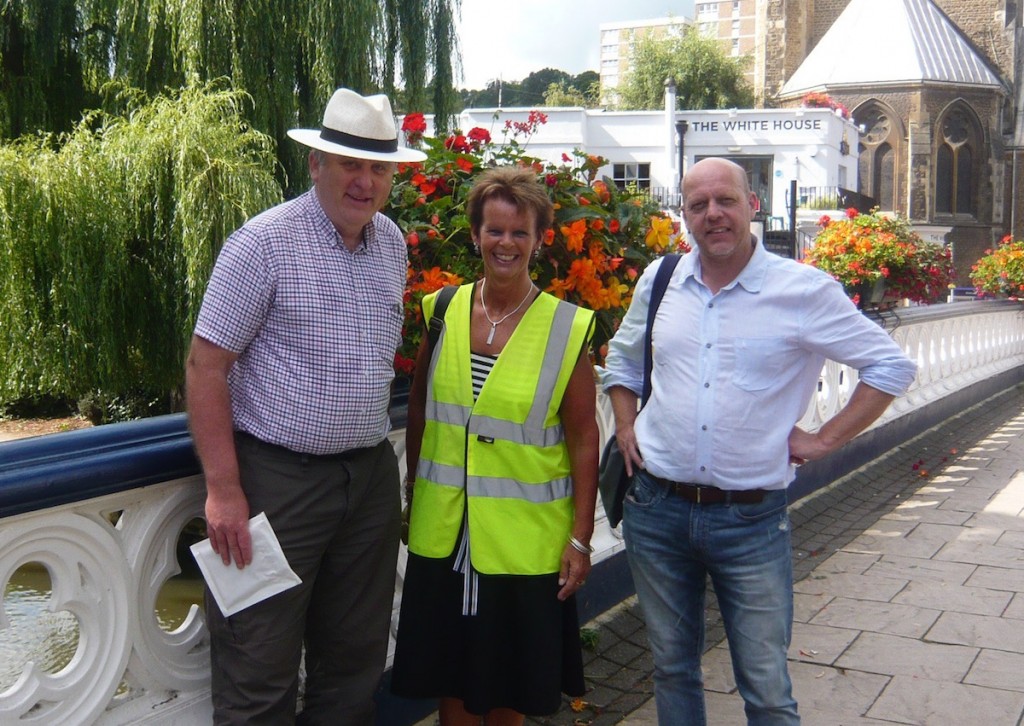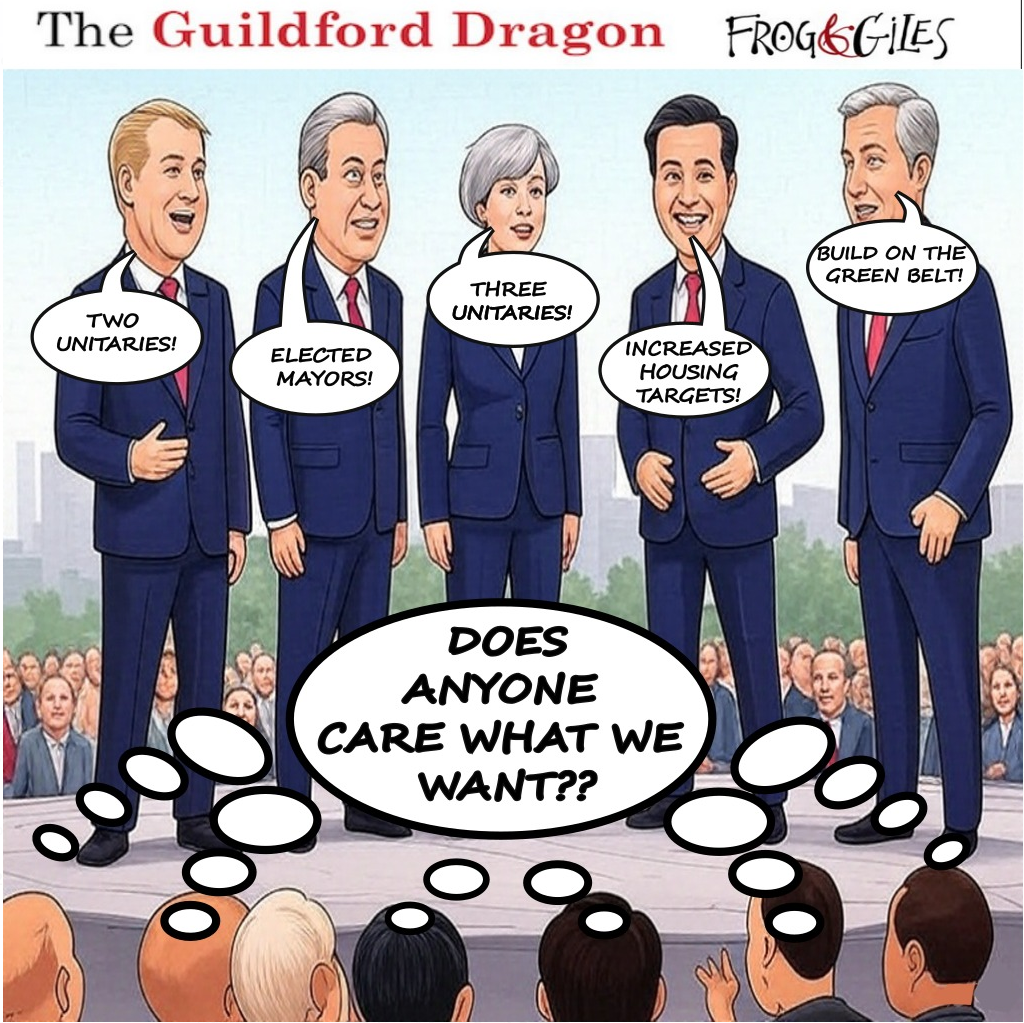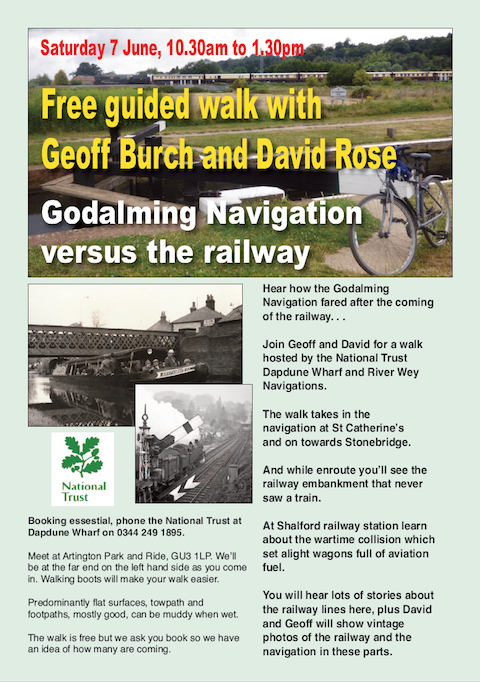 Abraham Lincoln
If given the truth, the people can be depended upon to meet any national crisis...
Abraham Lincoln
If given the truth, the people can be depended upon to meet any national crisis...
 Guildford news...
for Guildford people, brought to you by Guildford reporters - Guildford's own news service
Guildford news...
for Guildford people, brought to you by Guildford reporters - Guildford's own news service
Dragon Interview: Anne Milton MP on Immigration, Her Promotion, Council Tax, The Museum and more…
Published on: 31 Aug, 2015
Updated on: 5 Sep, 2015
Guildford’s MP was promoted following the general election in May and was also made a privy counsellor, so she is now a “Right Honourable”. The Guildford Dragon caught up with her during the parliamentary recess to discuss a wide range of topics, mainly from a local perspective. She was interviewed by Martin Giles.
What difference has you promotion made? What are your new responsibilities?
I am delighted to have been promoted. It was also a huge honour as it was to have been made a privy counsellor. I am deputy chief whip so it is what it says on the tin; I deputise for the chief whip. The main function of the whips’ office is to get the government’s business through the House of Commons but while doing that it is important to make sure that here is sufficient opportunity for opposition. So it is proper, if you are involved in government, to give time to, and ensure adequate opportunity for, the opposition to oppose. It is then for the government to respond and sometimes the government will change its mind.
The main job is to keep business rolling. We are there to turn the lights on at the beginning of the day and off at the end. As deputy chief whip I am often the last to leave. It means slightly more time in London than previously.
But my job also involves a certain amount of HR. We have over 300 MPs, some of them ministers, some backbenchers, some are new MPs. So my job is to make sure that they have at their disposal all they need to do their job, which is primarily to serve their constituents.
That might mean helping them get ample opportunities to speak in debates or to go to their constituencies as much as possible. However that’s quite difficult now because we have a smaller majority. The range of personal problems our MPs experience are the same as you would expect in any organisation of over 300 employees especially when they are working far away from family and that’s where the HR job comes in.
It’s becoming increasingly important that MPs, who are maybe unhappy with the detail of proposed legislation, have a chance to speak to ministers. So that’s another side of the job – facilitating discussion between backbenchers and ministers and vice versa.
Does your new job require you to ever attend Cabinet meetings, to deputise for the chief whip?
The chief whip attends Cabinet but is not a member of the Cabinet so, if required, I would attend in the chief whip’s place, as I do for other meetings.
Will you be accepting the MPs’ pay increase? Do you think it is justified?
IPSA [Independent Parliamentary Standards Authority] have made it clear that we are not going to be in a position to turn it down. I think it is very hard for the public to accept the pay rise that has been put forward. IPSA talk about a regrading of the job rather than a pay rise.
Many people ask me if I will be donating the rise, or part of it, to charity but my donations to charity are private and I think it is inappropriate to make party political capital out of them.
Councils are spending taxpayers money so what’s important is that councils spend that money wisely.
The pressure on local authority budgets is being increased. Is it fair and should the 2 per cent cap continue? Should councils become more commercial with their services?
Councils are spending taxpayers money so what’s important is that councils spend that money wisely. I think some of the financial pressure on councils has been good because it has made them think very seriously about what they do and consider whether they could do it more efficiently.
In Guildford we have recently seen, for instance, use of council offices by the police and that is the proper, efficient use of a council resource.
Councils, like a lot of other organisations, are going to have to become increasingly imaginative and perceptive about how they can deliver £1 worth of services for each £1 of taxpayers’ money they spend. At the end of the day they are guardians of the public’s money.
High demand in Guildford’s housing market continues unabated, forcing prices up. Isn’t there a direct link to the high rates of immigration to the UK that the last government, and this government, are unable to control.
We have done a great deal to reduce immigration from non EU countries. There are still issues about immigration to the UK from EU countries. It is running very high.
Part of that is down to two things: first, there is a skills shortage; second, there are wage differences within the EU. In other words, someone from Romania can earn the minimum wage here and feel quite well off whereas someone from here might think that he or she was not being paid enough for the job that they were being asked to do or that it is worthwhile, considering the benefits they can receive.
So, there is a tie up to skills, which is about education, there is a tie up to benefits, and there is a tie in to what work people are prepared to do. And you have to get that balance right.
Certainly if you look at Guildford, we are still an importer of labour for a great number of retail outlets and hospitality businesses in our High Street which could not function without immigration. However we have to address the skills, education and benefits, which we are doing.
I don’t think immigration is responsible for the high property prices in Guildford. The prices in Guildford are high because, as any estate agent will tell you, Guildford is one of the most desirable parts of the South East to live in and prices will always be high here.
There are still issues about immigration to the UK from EU countries. It is running very high.
But doesn’t immigration produce extra demand which will have the normal effect of raising prices?
It does increase the demand but we need people to do the jobs and those people need homes. In a survey I did, in mostly north Guildford, 60% said that we needed more homes and if I broke that down into people who rented their homes and people who owned their homes, it was 79% and 53% respectively.
The high prices in Guildford are because: a. it is very desirable probably more so than anywhere in the south east of England; b. it is very commutable to London; c. it is a nice place to live with beautiful countryside around and there is not very much land to build on; and d. there are a lot of jobs here.
Are current immigration levels sustainable for the next decade?
If you talk about the hospitality industry they probably have the need for even more immigration because they have a real problem getting staff. The same is the case for the care sector and in our hospitals. We have a real problem getting staff on lower wages.
We haven’t got the right balance at the moment. Some people think that immigration is the root of all evil, some people in business, particularly those wishing to employ a number of unskilled workers, probably don’t think that there is enough.
We have got to have a level of immigration that is acceptable to the British public but also at a level where we can maintain services. One mustn’t forget when talking about immigration that, if you take Spain for instance, there are a million British pensioners that live there. We tend to only think of people coming here and forget that many people choose to live elsewhere.
Immigration is dynamic. For example with medical education there are huge numbers of doctors who come over here as post graduates, receive training, and then return to their country. Actually, that movement of people from other countries coming here to train is very important, not just in terms of benefitting the UK economically, whilst they are here, but also in terms of buying from UK plc in the future. They often go back to their home countries and when they look to import expertise or goods they buy British because of their past associations with the UK.
What would be the optimum population of Guildford in 2025? What infrastructure improvements would such a population require?
I don’t know what the optimum population would be. One of the purposes of the Local Plan is to first and foremost produce a vision of what sort of Guildford do we want and what we need to achieve that.
I think the optimum is some growth but managed growth. We we need more homes and we need to compete with other areas of the South East, otherwise we will see shops on the High Street fail.
Some of the discussion about population, about housing and about the Local Plan is about getting that balance right. What is clear is that we don’t have good enough infrastructure to cope with the number of people who already live here.
There is some money from central government for improvements but we need a great deal more money, going into public transport. So that’s more platforms at Guildford station, longer trains and much better cycling facilities. I have recently met with Surrey County Council to discuss, specifically, their cycling strategy and to raise the frustrations that I, along with many others, feel about the cycle facilities in Guildford.
What is clear is that we don’t have good enough infrastructure to cope with the number of people who already live here.
Is our borough council really in control of planning within the borough when so much has to be approved by a planning inspector in Bristol?
The council is in control of planning according to legislation except when a decision is taken to appeal when the Planning Inspector decides. However a quick look at the figures shows that most planning applications are decided locally and even when they are taken to appeal the planning inspector more often than not upholds the local councils decision.
It is right and proper that a “higher authority” looks at Local Plans to make sure that due account has been taken of all the evidence. A lot of Local Plans have failed because the local authority hasn’t actually shown that it has considered at all the evidence for its proposals. For example, some councils have put forward low housing numbers without producing the evidence to back the figure up. It is absolutely critical that any Local Plan is backed up by solid evidence.
What is the most common problem presented by constituents in your surgeries?
Housing – people either waiting for, or in local authority housing wanting to transfer, usually to a bigger property or from private rental into a council property. That is certainly the largest single problem that people raise although planning issues also arise frequently.
In terms of policy, animal welfare is a very big part of my post bag, both domestic and farm animals and even bees. The subject of puppies being sold on the internet is a more recent concern.
I am incredibly proud of the people of Guildford… the reception in the High Street was amazing.
How proud did you feel when you welcomed Prime Minister David Cameron to Guildford on Armed Forces Day and how important is Armed Forces Day?
I felt incredibly proud on Armed Forces Day for two reasons: first because the prime minister was coming to Guildford and it was wonderful to be able to show Guildford off at its best. Secondly, I am incredibly proud of the people of Guildford, they are brilliant at turning out and the reception in the High Street was amazing.
Armed Forces Day is important because it commemorates and celebrates the work of our armed forces. The first duty of government is to keep its citizens safe and our armed forces are the front line in doing that.
The future of Guildford Museum is uncertain. What kind of museum would you like to see in Guildford?
One that people go to. One that is accessible. One that people know where it is.
I feel very lucky to be an MP for a town with as much history and I would like to see a museum that reflects all of that history. I would like it to be a museum not just about Guildford’s more traditional history but one that also shows the social and economic changes, the physical changes, something about the geology and maybe even something about the political history of Guildford. Our town has given birth to some famous politicians.
So I would love the museum to really reflect the whole gamut including things like the story of Cow & Gate, the history of Dennis’ and more recently the electronic gaming industry. By covering a wide range we would attract people of all different ages.
A museum should also incorporate the very best means of display that we see in places like the London Museum and the Science Museum.
May I invite you to a guided history walk of Guildford with David Rose and me?
I would absolutely love to go on a guided walk with you and David.

Anne Milton with Martin Giles (left) and David Rose about to head off on a history walk of Guildford that tool place a few days after the interview. Anne later wrote that she had “thoroughly enjoyed” her morning with the Guildford Dragon editors.
The interview with Anne Milton was conducted before the recent news stories about Syrian and other refugees. Ed
Responses to Dragon Interview: Anne Milton MP on Immigration, Her Promotion, Council Tax, The Museum and more…
Leave a Comment Cancel reply
Please see our comments policy. All comments are moderated and may take time to appear. Full names, or at least initial and surname, must be given.Recent Articles
- Letter: I Would Rather Have Potholes Filled
- New Parish Councillor Says Funds from Developers Must Benefit the Local Community
- Tests at Paddling Pool Showed Water Was Too Alkaline, Says GBC
- Letter: Our Residents Want CIL Money Properly Used for Infrastructure Without Delay
- Charity’s New Programme Meets Needs of SEND Children Without School Places
- Pasta Evangelists to Open First Restaurant Outside London – Right Here in Guildford
- Police Seek Witnesses to Park Barn Assault
- Notice: Rosamund Community Garden
- Village School Set to Close Due to Falling Birth Rate
- Letter: Waverley’s Management of CIL Money Is Morally Questionable


Recent Comments
- Warren Gill on Millions of Taxpayer Money Recovered from Railway Fare Dodgers
- Roshan Bailey on Public Asked for Views on SCC’s Proposal for Reduced Speed Limits
- R Wong on Letter: Our Residents Want CIL Money Properly Used for Infrastructure Without Delay
- Nigel Keane on Village School Set to Close Due to Falling Birth Rate
- Patrick Bray on Public Asked for Views on SCC’s Proposal for Reduced Speed Limits
- Mark Percival on Public Asked for Views on SCC’s Proposal for Reduced Speed Limits
Search in Site
Media Gallery
Dragon Interview: Local Artist Leaves Her Mark At One of England’s Most Historic Buildings
January 21, 2023 / No Comment / Read MoreDragon Interview: Lib Dem Planning Chair: ‘Current Policy Doesn’t Work for Local People’
January 19, 2023 / No Comment / Read MoreA3 Tunnel in Guildford ‘Necessary’ for New Homes, Says Guildford’s MP
January 10, 2023 / No Comment / Read More‘Madness’ for London Road Scheme to Go Ahead Against ‘Huge Opposition’, Says SCC Leader
January 6, 2023 / No Comment / Read MoreCouncillor’s Son Starts Campaign for More Consultation on North Street Plan
December 30, 2022 / No Comment / Read MoreCounty Council Climbs Down Over London Road Works – Further ‘Engagement’ Period Announced
December 14, 2022 / No Comment / Read MoreDragon Interview: GBC Reaction to the Government’s Expected Decision to Relax Housing Targets
December 7, 2022 / No Comment / Read MoreHow Can Our Town Centre Businesses Recover? Watch the Shop Front Debate
May 18, 2020 / No Comment / Read More














Harry Eve
September 1, 2015 at 9:25 am
I wonder if the letters about bees were the drones complaining about their fate? See Beekeepers’ Diary.
John Robson
September 3, 2015 at 10:47 am
With respect to immigration levels:
When I see images of dead children being washed up on Turkish beaches I realise that we don’t have any real problems.
Politicians helped to create this crisis. When is Cameron going to act as real leader? When are the Conservatives going to show some compassion?
If it was a bank in trouble they would have stepped in by now.
Alison Craze
September 3, 2015 at 9:51 pm
Anne Milton’s comments about immigration are balanced and she is right that migration and movement of people is something which will continue in today’s world.
I am very sorry that she said nothing about the refugee crisis and the need for refugees from the war in Syria for a place of safety. Guildford has played its part before, finding places to accommodate refugees from Bosnia and Uganda and I think we should be offering help to some of these traumatised people again.
The interview with Anne Milton was conducted before the recent news stories about Syrian and other refugees. Ed
Claire Morris
September 5, 2015 at 7:39 pm
It is interesting to hear that the most common problem presented by constituents is people waiting for local authority housing. I wonder what Anne Milton’s views are on the right to buy policies being put forward by her government?